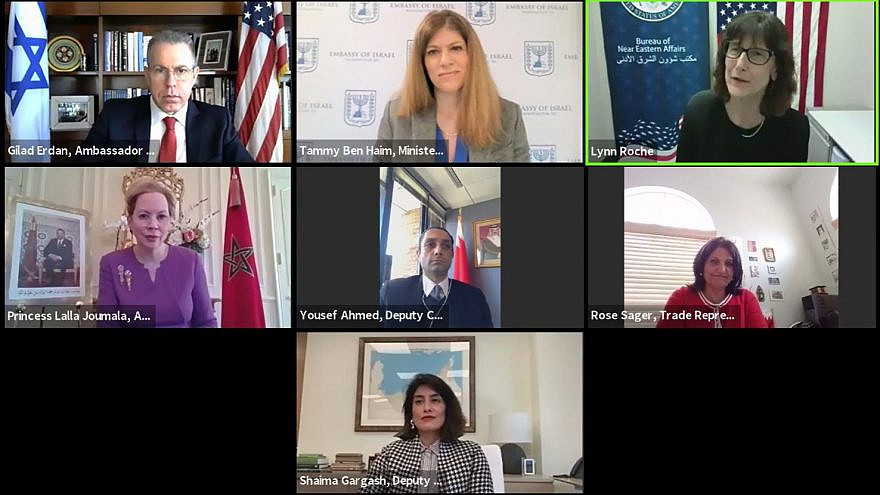In honor of International Women’s Day on March 8, the Israeli embassy co-hosted an event with the embassies of the United Arab Emirates, Bahrain and Morocco to discuss the essential role women are playing in the Abraham Accords.
“International Women’s Day is not just a day for celebrating, it is also a day for reflecting on the role women play in our societies,” said Gilad Erdan, Israeli Ambassador to the United States and the United Nations, in opening remarks. “The accords have transformed the region in so many ways. They are the source for new cooperation in business, culture and academia, and are a shining example of coexistence and religious tolerance.”
The event, which was moderated by Lynn Roche, director of press and public diplomacy for the U.S. State Department, included Moroccan Ambassador to the United States Lalla Joumala; Shaima Gargash, deputy chief of mission at the UAE embassy in Washington; Yousif Ahmed, acting deputy chief of mission at the Bahrain embassy in Washington; Rose Sager, trade representative at the Bahrain embassy; and Tammy Ben Haim, minister for public diplomacy at the U.S. embassy in Jerusalem.
On the other hand, referring to the accords, she said “thankfully, 2020 also ended in a note of great hope especially in our region.”
Similarly, Gargash said the normalization agreements represent “such a historic moment for our region and for peacemaking. There is no way to promote this peace without women.”
Ahmed also spoke about coronavirus and the vital role women are playing in response, especially in the fields of health care.
“Women are actually leading the health response for the vaccine. Women also make up almost 70 percent of the health-care workforce,” she said. “I think that’s something quite significant. The core work behind the vaccine research also came from a team of women, and that’s something that can’t be disputed.”
Having grown up Jewish in Bahrain, Sager said being female was not an obstacle—that “we were encouraged to do whatever we aspired to” and that the Muslim nation has shown itself to be “a model of peaceful coexistence and religious freedoms.”























